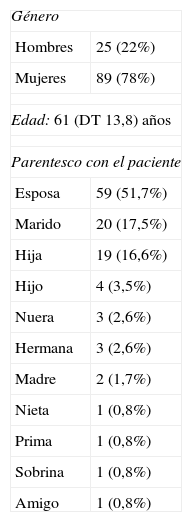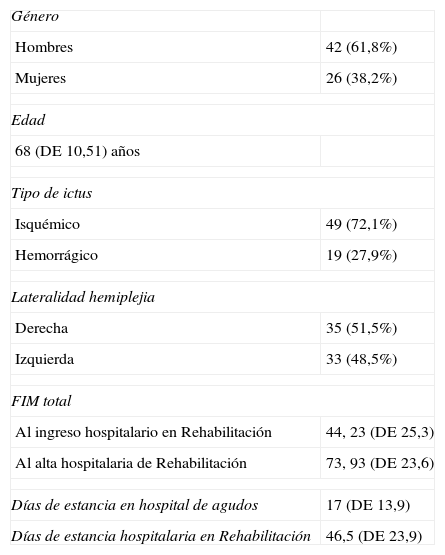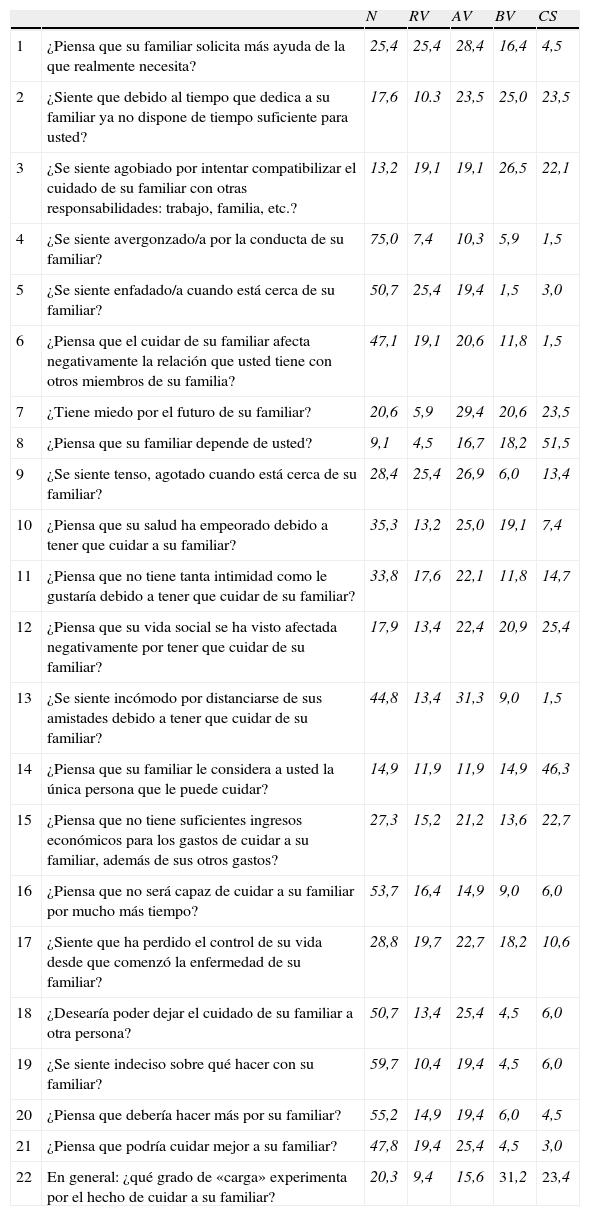Habitualmente son los miembros de la familia los que asumen los cuidados del paciente con ictus. Los objetivos de este estudio son conocer la sobrecarga del cuidador informal del paciente tras un ictus, y analizar la relación entre esta sobrecarga y la situación funcional del paciente.
Pacientes y métodoSe incluyeron todos los pacientes ingresados para tratamiento rehabilitador tras un ictus, y dados de alta hospitalaria de julio de 2007 a febrero de 2008. La sobrecarga del cuidador se valoró mediante la Escala de Sobrecarga de Zarit, y la situación funcional del paciente mediante el valor de la Medida de Independencia Funcional (FIM) recogido al alta hospitalaria.
ResultadosEl tiempo medio transcurrido al realizar las encuestas fue de 15 meses (DT 2,07). De los 114 cuidadores que participaron en el estudio, el 78% fueron mujeres. Su edad media fue de 61 años. El cónyuge fue el familiar más implicado como cuidador (69,2%), seguido de los hijos (20,1%). Se recibió el cuestionario de Zarit de 69 cuidadores, que obtuvo una puntuación media de 33,62 (DE 17,23). No se halló correlación entre el valor FIM y el Zarit (p=0,83).
ConclusionesLa mayoría de los pacientes con ictus viven en su domicilio, atendidos por un familiar. El cuidador principal habitualmente es una mujer, que experimenta una elevada sobrecarga por los cuidados que presta. El grado de discapacidad del paciente no determina por sí solo la sobrecarga experimentada por su cuidador.
The members of the family are generally those who assume the care of stroke patients. This study has aimed to know the overload of informal caregivers of stroke patients and to analyze the relationship between this overload and the functional performance of the patients.
Patients and methodAll of the patients who were admitted in our hospital to receive rehabilitation treatment after stroke and who were discharged from July 2007 to February 2008 were included in the study. The caregiver overload was assessed on the Zarit Overload Scale and the functional performance of the patient was evaluated with the Functional Independence Measure (FIM) value at the time of hospital discharge.
ResultsThe average time from hospital admission to when the surveys were administered was 15 months (SD 2.07). A total of 78% of the 114 caregivers who participated in the study were women, with a mean age of 61 years. The spouse was the relative most involved as caregiver (69.2%), followed by the children (20.1%). We received the Zarit survey from 69 caregivers, with a mean score of 33.62 (SD 17.23). There was no correlation between the FIM values and the Zarit Scale (p=0.83).
ConclusionsMost of the stroke patients live at home, attended by a relative. The usual caregiver is a woman, who suffers a great overload caused by the care she gives. The degree of disability of the patient does not determine, by itself, the overload experienced by the caregiver.









